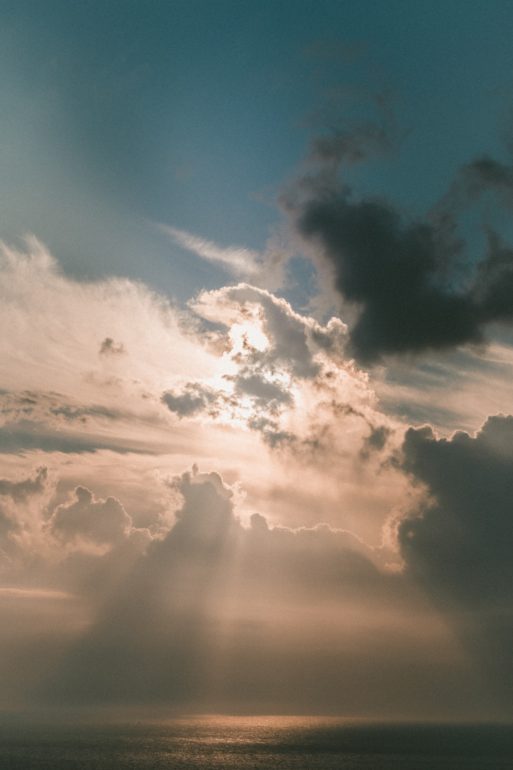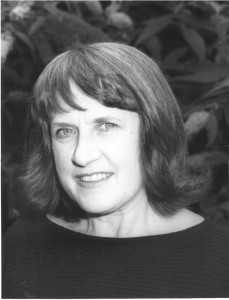 I chose this week’s poem because I loved its mixture of imagery and metaphor. Its title alone, “Cloud-Eye,” foreshadows this use of figurative language. And incidentally, foreshadowing is an important part of the poem as well. Katherine Gallagher uses each of these devices to describe the imminent loss of a woman’s mother.
I chose this week’s poem because I loved its mixture of imagery and metaphor. Its title alone, “Cloud-Eye,” foreshadows this use of figurative language. And incidentally, foreshadowing is an important part of the poem as well. Katherine Gallagher uses each of these devices to describe the imminent loss of a woman’s mother.
From its outset, the poem hints at the future and what it holds: “The sting in a limbering spring day/foreshadows summer” (1-2). Already, the narrator sees signs of what’s ahead. And even in this simple nature metaphor, the future is negative: the heat of the impending summer has a “sting” to it that ruins the present moment. Continuing with this theme of nature, Gallagher next describes the flourishing plants outside the window, such as “young-/leafed eucalypts” (3-4), to contrast them with her mother’s poor health: “she…[is] too ill to speak” (4).
As the narrator observes her mother getting sicker, she notes, “she…slowly becomes my eye in the clouds, the gap/I will see through” (4-6). Figuratively, there will be a gap in the narrator’s life once her mother is gone, but here the “gap” that is referenced is a good one; the narrator has learned from what her mother has passed down to her, and she will use this knowledge to help guide her through life.

Katherine Gallagher
Meanwhile, the narrator has had to struggle with seeing her mother’s condition worsen. Gallagher writes, “I’ve tried to prepare myself, remembering her cyclopaedic mind, her gift for solutions” (8-9). Once again, the narrator makes mention of her mother’s wisdom, and uses this to comfort herself. But no one is ever fully prepared for a death.
While much of the poem has focused on the future, and what will happen after the loss of the woman’s mother, the final stanza is very much about the present, and is therefore that much more painful. After the narrator reaches out to hold her mother’s hands, Gallagher describes, with both realism and symbolism, the mother’s final moments:
She slides down into sleep and wakes again
on this final island, where touch is more important
than words. She grimaces, begs for morphine . . .
Our world divides. We’ll fly differently now. (11-14)
The narrator uses one last symbol in describing the end of life as a “final island” (12). The narrator’s mother is not actually alone, but death is a kind of island in itself. Gallagher doesn’t hold back in her description of the mother’s death, but she also returns to the metaphor of the sky and its significance for the narrator. Although this death means that the two characters’ “world divides” (14), the poet doesn’t say that the two birds are no longer flying together: rather, they are simply flying “differently now” (14).
*Top photo credit: She Scribes
*Poet photo credit: www.katherine-gallagher.com
Related Reading:
- Read more about Katherine Gallagher
- “The Role of Bargaining” (SevenPonds)

 “Cloud-Eye” by Katherine Gallagher
“Cloud-Eye” by Katherine Gallagher


 First the Wealth Gap, Now the U.S. Has a Growing Health Gap
First the Wealth Gap, Now the U.S. Has a Growing Health Gap
 How to Comfort A Dying Loved One
How to Comfort A Dying Loved One
 Our Annual Seven Holiday Gifts for Someone Who Is Grieving, 2024 Edition
Our Annual Seven Holiday Gifts for Someone Who Is Grieving, 2024 Edition














